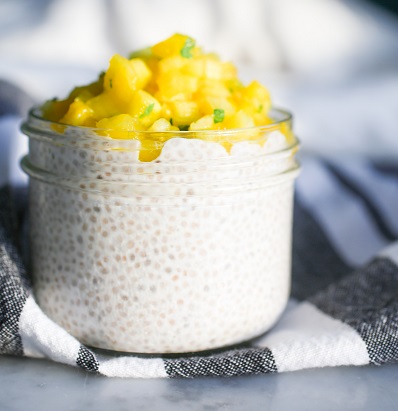Have you considered how our thought life affects our physical and mental health? Our thoughts mold how we see ourselves and the world. Negative thoughts and self-defeating beliefs negatively impact our mental and physical health as well as our relationships. It can lead to moodiness, anxious thoughts, or even anxiety disorders.
Today, in Episode 49, Shonda shares some personal areas in her life concerning stress-producing thoughts while Patryce encourages some helpful tips and promises to hold Shonda accountable. Yes, stress is real in all of our lives, let’s tackle our thought-life that can add to the stressful load. Let’s learn how to overcome stress and create a sense of peace.
Here is the list of the top 5 toxins:
- Food
- Water
- Environment
- Beauty and personal care products
- Stress and negative thinking (This Episode)
CONTACT US: We want to come alongside you, as well, as we all continue moving toward a positive direction to support our healthy lifestyles. If there are any specific ways that we can be of assistance, please contact us through our contact form or send a verbal message through Speakpipe.
OTHER WAYS TO SUBSCRIBE AND LISTEN:








We invite you to listen and share your perspectives with us too. Send us a recorded message through Speakpipe. We may use your message in an upcoming episode, therefore, please leave your name if you would like it to be noted during the podcast. Leave an email address if you would like a personal response or feel free to use the contact form.
SHOW NOTES:
The Article that prompted these discussions about toxins.
Previous Articles and Episodes About Stress
Matthew 12:43 – 45 (NIV): (A symbolic reminder that we cannot clean up our thoughts and then hope they remain clean on their own. We must replace them with good thoughts.)
43 When an impure spirit comes out of a person, it goes through arid places seeking rest and does not find it. 44 Then it says, I will return to the house I left. When it arrives, it finds the house unoccupied, swept clean, and put in order. 45 Then it goes and takes with it seven other spirits more wicked than itself, and they go in and live there. And the final condition of that person is worse than the first. That is how it will be with this wicked generation.
The Dirty Dozen and The Clean Fifteen (Vegetables and Fruits):
The Dirty Dozen
The Clean Fifteen
Also available on YouTube:
[00:00:00] Okay. Hi, Patryce. How are you? Well, thank you. I'm hanging in there too. Yeah, me too. Yeah, I'm hanging in here. Talk about stress, right? Yes. We all have it. We all have it. So that's why this is a great topic. You want to get us started on it,Shonda.
[00:00:18] Yeah. Cause I've been thinking about, you know, last week you talked about external stresses in our life.
[00:00:24] Right? And so one that comes to mind for me that is, are my dogs. They require so much. I have four of them. My husband brought home a pregnant dog and it just happened. But yes, the, the feeding, the care, the washing, the teeth, the, bathing the cleaning up after them.
[00:00:45] I mean, they're like little kids. So it's like, I really just can't get away from it. But you know, then, you know, I've been trying to work along the years on refining the process of taking care of them. And I guess if I think about it, it has gotten a little better.
[00:01:02] And so with today's topic about toxic stress, like our thoughts, I think there's still probably some thoughts I could clean up about the dogs that would help me better deal with them.
[00:01:18] That's a great, that's a great segue into negative thoughts, thoughts, and then self-defeating beliefs really can add stress to our lives and the negative thoughts, for example, like with your dogs.
[00:01:31] And for me, you know, I have stressors too. Or even just the whole COVID climate. Not that I'm constantly in stress or anxious, but you know what, that's why I limit my amount of news I'd take in because it seems to change daily.
[00:01:47] And does anyone really know the whole truth and nothing but the truth? So I, again like your, your external stressors, we have to learn ways to manage them. And instead of me having negative thoughts, I take away the source of those negative thoughts. For me, not overindulging in the news or social media, but instead, just focusing more on things that bring me peace.
[00:02:16] Right. Yeah. That's a really good idea. Cause I'm just thinking about a lot of the things that we watch. So those thoughts, the things that we see, right? They like make a real imprint on our brain and we play them over and over again.
[00:02:33] Yeah. That's a very good point. And that leads me to touch on self-defeating beliefs. Like you said, these thoughts can be ingrained. So self-defeating beliefs are with us all the time because they are things that we allow to penetrate our belief system. And so those have to be recognized and then we have to change a self-defeating belief system to non self-defeating, you know, positive.
[00:03:05] So it's, again, I think for negative thoughts and self-defeating beliefs, both situations we have to be intentional about recognizing where they are in our lives. And then addressing them head on and with, I want to change this. I'm going to change my thought process. This self-defeating belief that I've had forever.
[00:03:23] It's not true. That's number one, like check yourself. I'm stupid because maybe you are at work or maybe it's a hard, yeah. And things aren't working according to plan, and you can find yourself saying things like negative self-talk - "I'm stupid. Why do I always," - do we always do anything?
[00:03:41] No. But self, , self defeating beliefs and negative thoughts are things that we should start intentionally identifying in our lives and then we should be intentional about changing them.
[00:03:54] Yeah, I don't know if I'm skipping ahead, but I just had a thought what about this perfectionism? I usually have a positive outlook on things like, okay, I can do this, but at what point is it enough for me? You know what I mean? Maybe my perfectionism is holding me back because I never make it to the place that I want. I want perfection, you know, instead of accepting the little progress that I've made, which I have, I know with these dogs, I have made a lot of progress, you know, but it's like, I just want, I want. the ultimate thing. And it's not about anybody else. It's just about me. It's what I, what I want from, from me. And it just not practical.
[00:04:43] That's a very good way of describing it. And I'm glad you brought up perfectionism. A lot of times we don't even identify in our own selves, but I think what you just described is something common among all ages, all people that at the end of the day we're not able to be content with where we are.
[00:05:02] Not that we shouldn't strive to do better, but always beating ourselves up by doing more and more instead of saying, look, look how far I've come. Like you said, with the dogs. And if everyone who's listening actually knew the whole story about Shonda and the dogs and how they saved one of them at birth.
[00:05:21] That's another whole podcast. But, I think what you just said was so on the money that we sometimes embrace perfectionism. And honestly, I think even as a child, we sometimes have parents who may be practicing perfectionism, unbeknownst to us and them, for sure. And without us realizing it becomes a self-defeating belief because we start trying to achieve perfectionism because our parents may have encouraged it subconsciously.
[00:05:53] So again, I really love that explanation you gave and hey, you already have identified something that's probably adding stress. And so now you can see how you can change it.
[00:06:05] Yeah, that's true. Yeah. Hold me to that. I will.
[00:06:11] So Shonda, do we want to talk about what these negative thoughts and self-defeating beliefs can lead to? Well, it can contribute to you. , self-esteem issues, even depression, even, , anxiety disorders, poor appetite. You know, a lot of kids in college. I think they have that going on the poor appetite or the digestive system being negatively impacted all of these things and more can be a result of just continuing to have negative thinking and self-defeating beliefs. So, gosh that doesn't sound that intense, but over time, there are people who have gone to doctor after doctor taking test after test and the tests come back negative.
[00:07:01] Oh, that was me. For the IVs that I had so many years I had it for at least five years. I was trying to figure it out. I mean, all kinds of stuff, but yeah, I did. It was really 2018 that I was like, this has got to stop this, this, this is, you know, and so I did recognize some anxious thoughts that I was having and I had to stop.
[00:07:24] I had to stop speaking those anxious thoughts that I had, and even when my stomach was still giving all the upsets and the bloating and the pain, I stopped talking about it, I was like, I'm not going to give life to this anymore. And like within months I'm telling you that went away and I have not had it since.
[00:07:46] I mean, every now and then, I'll have like, you know, maybe a day, a moment, you know, but, oh man it was meal after meal, you know, with IBS issues. And it was all, I was just, in this anxious place at one at that gone. I wanted other stuff changed, so, yeah.
[00:08:08] I love what you just described. Well, not that you had to go through that, but when we have those negative thoughts, it's powerful to just identify I'm having this negative thought. Let me stop having it. The next part, which I think sometimes we forget is to replace that negative thought with a positive. If, for example, I know the Bible is where I find peace and because I practice, what God says in his word. That when I say things like I'm stupid or something like that, I can say I'm a child of God I'm fearfully and wonderfully made. Or, I am loved a lot of people just have positive affirmations, whether they're Christian or not, they put things like, I love.
[00:08:50] Patryce. I, you know, I'm, I am able to do things and just, I guess I'm thinking about positive affirmation. So, not only stopping these negative thoughts, but replacing them with good thoughts and the truth. And that whole thing I read in an article is so powerful. And we're in the midst of these, negative thoughts and self-defeating beliefs, just check ourselves and say, is this true?
[00:09:17] What I'm saying, is it really true? And if that's not enough for you go to your friend or your family member and say, you know, I'm thinking these things, can you help me here? Is this true about me? Would you say this, you know, get help. And that leads me to, we can also get, you know, like you said, we have these thoughts, we identify it and then we can, stop them and then change them. And we can always seek counseling.
[00:09:42] Hmm. Okay. Yeah. That's all good. I think about, replacing those thoughts. That's important. You don't want to leave it empty, right. So other bad thoughts can go, come in the place. And there's a scripture that goes with that too. We need to put that scripture on there, you know about sweeping out the house.
[00:09:59] I've never been a journaler, but I think it does help some people and it probably would help me, you know, so maybe I'll try, like on a piece of paper, you know, above my computer, I can write better thoughts, you know, turn those thoughts that I know I'm repeating. Write a better outcome.
[00:10:25] I love it. It sounds like positive affirmations. I do them on stickies. I put them on my mirror. I used to have on the refrigerator. Those are helpful ways to combat our thoughts because we're constantly having thoughts. So why not have good thoughts and not the bad.
[00:10:43] Yeah. And the good ones feel so good. They, they affect us so positively. Right? I know, because, along my health journey I was like, why am I not getting better? I'm doing all these things. And I remember the time that I was the most relaxed, like when it kind of all came together when I was enjoying the process of taking care of myself, You know, not like, oh, I gotta do this.
[00:11:07] I gotta do that. I gotta, you know, whatever, but taking time to be thankful that I can do it taking time to enjoy it, you know, and maybe share it . But being at peace does a lot for your body. And we're talking about these toxic things take a toll on our health. So we want to take out these toxic thoughts and we want to move towards peace.
[00:11:33] Yes. I love that. Move towards peace and remove those toxic thoughts. And then we're able to spread out to others and just be a more uplifting part of society. I think we all could use peace in this world, and it's not about the peace from the outside. It's from peace from within. And what you just described is something I think we should all be trying to work towards.
[00:11:58] And I love the fact that I may be saying it not like you did, but that when you got to the point where you were enjoying the process, moving into a new habit or moving along. Instead of I'm so not into this process. Just let me get to the end. Let me get to my success instead of just like embracing that process, I guess that's what people mean when they say like take things one day at a time. And I think in our society, we rush rush, rush. So. Maybe that's another thing we can do is to not be so rushed and to practice just taking your time and gratefulness.
[00:12:37] I think I heard you speak about gratefulness. And I have not done that lately to be intentional. I mean, I actually have an app where each day at the end of the day or beginning, I would write what I'm grateful for. And that was just another way to renew my mind and change my thinking. I I'm glad you reminded me of that. I'm going to try to do that again. It's like journaling but on your phone.
[00:12:59] Okay. Yeah, that's really good. That's really great.
[00:13:00] So Shonda. Why don't we pose this question to our audience or anyone out there listening? Um, if you were to ask yourself the question, do I see the glass half-empty or half-full when it comes to how my life is? And if it's that you see it's half-empty. Reconsider thinking of life as a glass half-full. So that's the challenge we want to present to everyone out there, including ourselves.
[00:13:28] Yeah. That's a good challenge. Cause if it's half-full, you just keep filling it up, right. You're on your way. Yeah. Okay. We'll do that. That's a good challenge.
[00:13:39] And let's just be encouraged that it's day by day that we can be more intentional and that we can then feel more empowered.
[00:13:49] Yeah. See y'all later. Bye-bye.
GET STARTED WITH THE REAL FOOD AND DRINKS LIFESTYLE
Enter your name and email address below and I'll notify you weekly of podcasts, website posts, recipes, videos, and events that have been shared during the week because you won't want to miss these.



